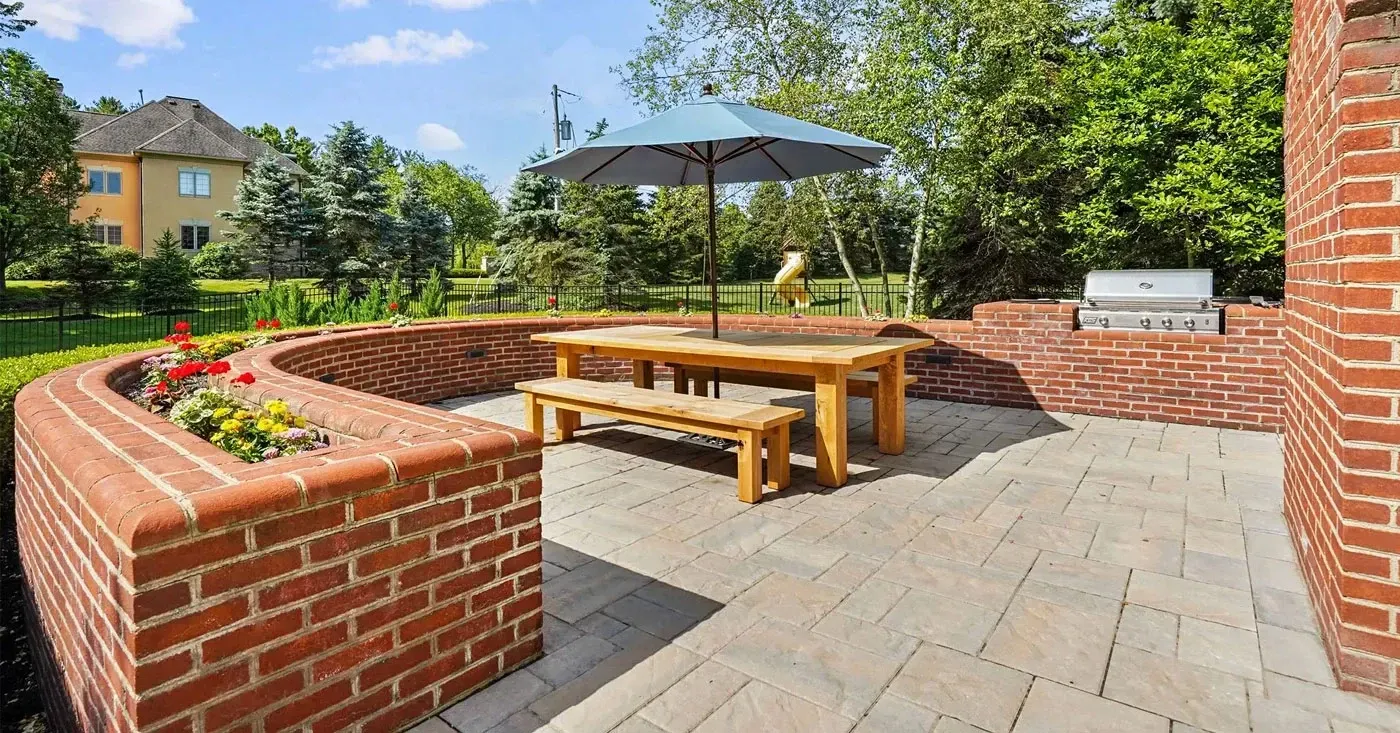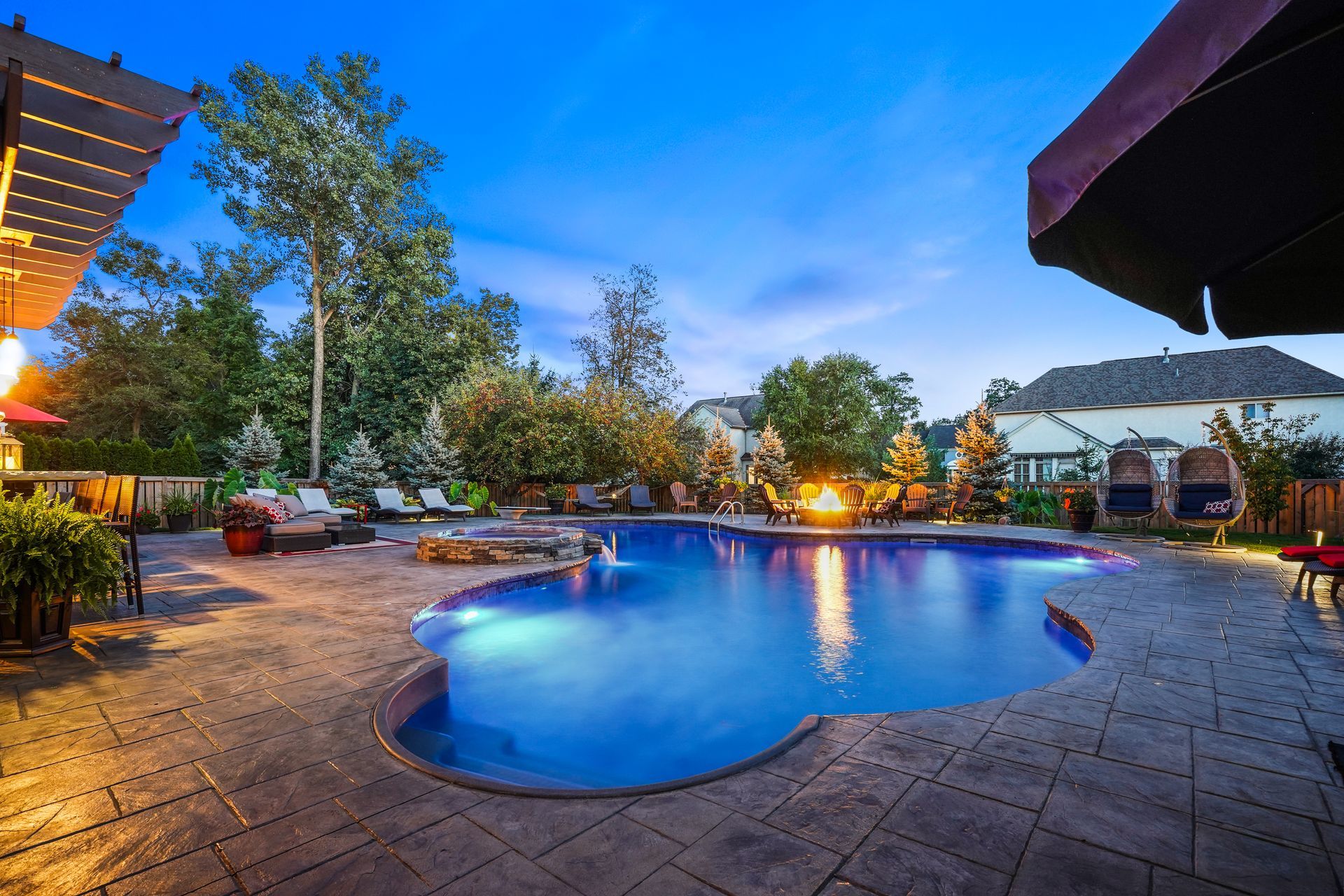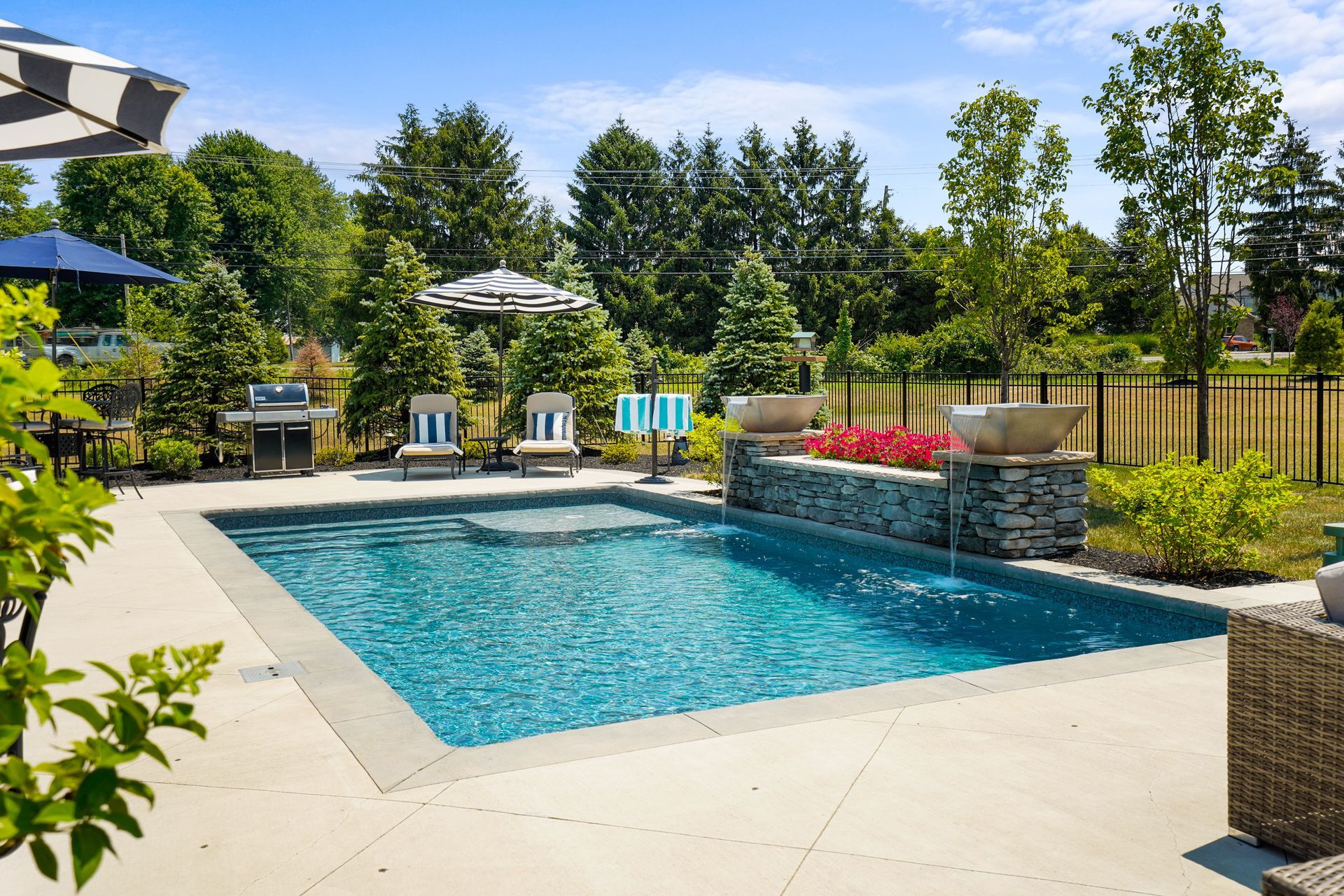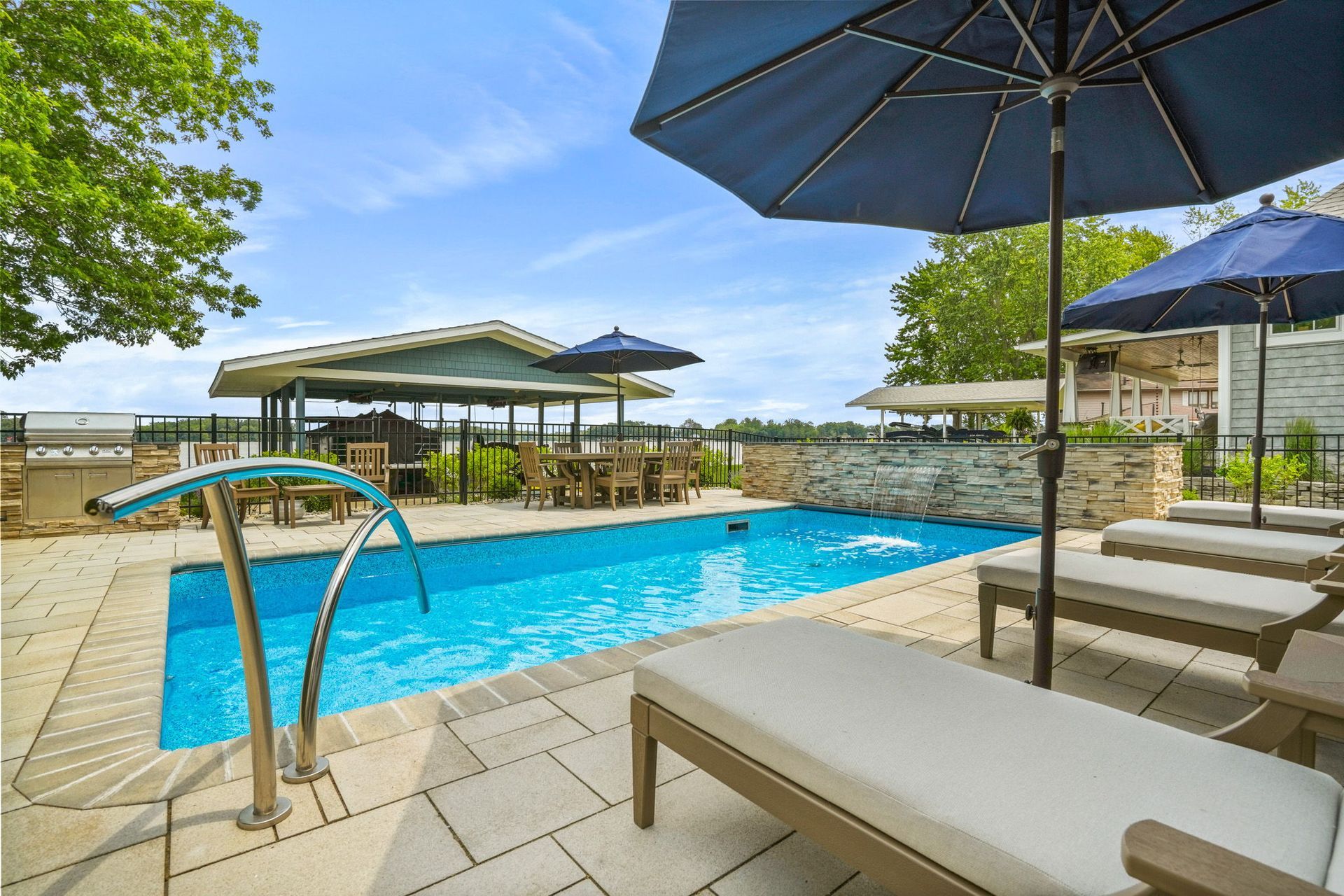Can Stamped Concrete Save Me Money?

If you are considering having a hardscape put in on your property, it’s important for you to think about all of the possible options. When it comes to driveways, walkways, and patios, there are many choices to pick from, including natural stones, pavers, bricks, and concrete. You’ll want to keep in mind the visual appeal of your chosen material, as well as its durability and cost.
Many homeowners choose stamped concrete to complement their homes and to create a lovely outdoor walking, parking, or sitting area. Stamped concrete is cost-effective and makes sense in many cases. Here are some of the ways that stamped concrete can be a financially savvy choice:
Get the Look of More Expensive Without the Cost
Stamped concrete can be designed to mimic more expensive hardscaping materials, such as cobblestone, flagstone or brick. Because nearly any color and texture can be integrated into your concrete, you can enjoy an upscale-looking patio or pool deck for less.
Maintenance Costs Are Lower
Once you have your hardscape installed, you might want to just enjoy using it without worrying about upkeep. Stamped concrete requires less maintenance than stone or brick. You won’t have to worry about weeds popping up between pavers, and there won’t be any separation between the grout lines. Have it installed and forget about it, for the most part!
Raise Your Home’s Value
If you are planning on putting your house on the market, then a customized patio, walkway, pool deck or driveway can make a great first impression. Your hardscaping will show potential buyers that you take pride in home-ownership, which allows them to feel confident that you have taken good care of the rest of the house, as well. Since maintenance is low on a stamped concrete area, this is a boon for buyers who don’t have a lot of time to devote to yardwork, too!
Enjoy Other Benefits as Well
There are other benefits to having stamped concrete patios and walkways installed, too. For example, you will have excellent traction, and you won’t have to worry about slips and falls when the material is wet, which makes it ideal for pool decks. Also, the concrete is durable and will stand up to the heavy use that a patio or driveway can get.
If you are thinking about having a hardscape put in, stamped concrete definitely deserves serious consideration. If you have questions about concrete or any other hardscaping materials, our landscaping team will be able to answer them.
OMNI LEARNING CENTER
RECENT POSTS




